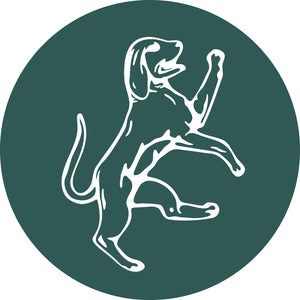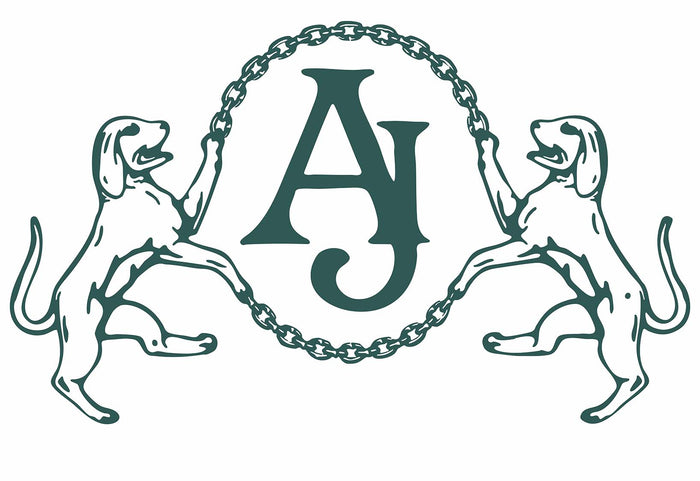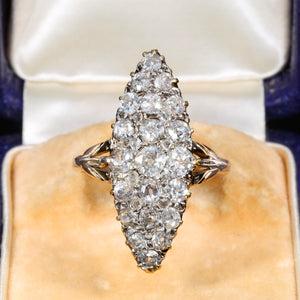Investing in Antique Rings: What Makes an Antique Ring a Good Investment?
Antique rings are not only exquisite pieces of jewellery but also potential investment assets. With their timeless beauty and historical significance, they can appreciate in value over time if chosen wisely. This guide explores the financial aspects of investing in antique rings, highlighting the key factors that contribute to a ring's value, such as rarity, condition, provenance, and demand. We'll also offer advice on how to research and select antique rings that are more likely to become valuable investments.
1. Understanding the Value of Antique Rings
Investing in antique rings requires a deep understanding of what makes them valuable. Several factors influence their worth, both at the time of purchase and in the future.
1.1 Rarity
- Limited Availability: Antique rings are often one-of-a-kind or produced in limited quantities, increasing their rarity.
- Unique Designs: Distinctive craftsmanship and design elements not found in modern jewellery enhance their exclusivity.
1.2 Condition
- Well-Preserved Pieces: Rings in excellent condition are more desirable and command higher prices.
1.3 Provenance
- Documented History: Rings with a well-documented history or association with notable individuals or events can significantly increase in value.
- Authenticity Certificates: Documentation from reputable sources verifying the ring's origin and authenticity adds credibility and value.
1.4 Demand
- Market Trends: The popularity of certain styles or eras can affect demand and value.
- Collector Interest: High demand among collectors for specific types of antique rings can drive up prices.
2. Factors Contributing to a Good Investment
Not all antique rings will appreciate in value. Here are the key factors to consider when assessing a ring's investment potential.
2.1 Historical Significance
- Era Importance: Rings from significant historical periods or movements (e.g., Art Deco, Victorian) may hold more value.
- Cultural Impact: Pieces that reflect important cultural or artistic developments are often sought after.
2.2 Quality of Craftsmanship
- Artisan Skill: Exceptional craftsmanship and intricate designs enhance a ring's value.
2.3 Material Value
- Precious Metals: High-quality metals like platinum or high-carat gold increase intrinsic value.
- Gemstone Quality: Rare and high-quality gemstones (diamonds, sapphires, rubies) enhance investment potential.
3. Researching and Selecting Antique Rings
Thorough research is essential when investing in antique rings. Here's how to approach the selection process.
3.1 Educate Yourself on Antique Jewellery
- Learn About Different Eras: Understand the characteristics of various periods to identify valuable styles.
- Study Market Trends: Keep abreast of which styles and periods are currently in demand.
3.2 Verify Authenticity
- Hallmarks and Maker's Marks: Learn to read and interpret hallmarks to verify origin and authenticity.
3.3 Assess Condition Carefully
- Check for Damage: Inspect the ring for any signs of wear, repairs, or replacements.
- Originality: Ensure the ring retains its original gemstones and settings.
3.4 Consider Provenance
- Documentation: Seek rings with expert reports and other documentation.
- Historical Ownership: Rings owned by notable figures can be more valuable.
4. Where to Buy Antique Rings
Choosing the right place to purchase antique rings is crucial for both authenticity and investment potential.
4.1 Reputable Dealers
- Specialist Antique Jewellers: Dealers specializing in antique jewellery often provide authenticated pieces.
- Established Businesses: Look for dealers with a long history and positive customer reviews. Check out our reviews here.
4.2 Online Marketplaces
- Verified Sellers: Use platforms that offer seller verification and buyer protection.
- Detailed Listings: Look for listings with thorough descriptions and high-quality images.
5. Tips for Investing Wisely
Maximize your investment potential with these strategic tips.
5.1 Diversify Your Collection
- Variety of Eras: Invest in rings from different periods to spread risk.
- Different Styles: Include various designs and gemstone types.
5.2 Stay Informed
- Market Research: Keep up-to-date with industry news and market fluctuations.
- Networking: Engage with collectors and experts to gain insights.
5.3 Long-Term Perspective
- Patience is Key: Antique jewellery investment is typically a long-term venture.
- Emotional Value: Choose pieces you love; enjoyment adds value beyond financial returns.
Conclusion
Investing in antique rings can be both financially rewarding and personally satisfying. By understanding the factors that contribute to a ring's value—such as rarity, condition, provenance, and demand—you can make informed decisions and select pieces with strong investment potential. With careful selection and a long-term perspective, antique rings can be a valuable addition to your investment portfolio and a cherished part of your personal collection.


